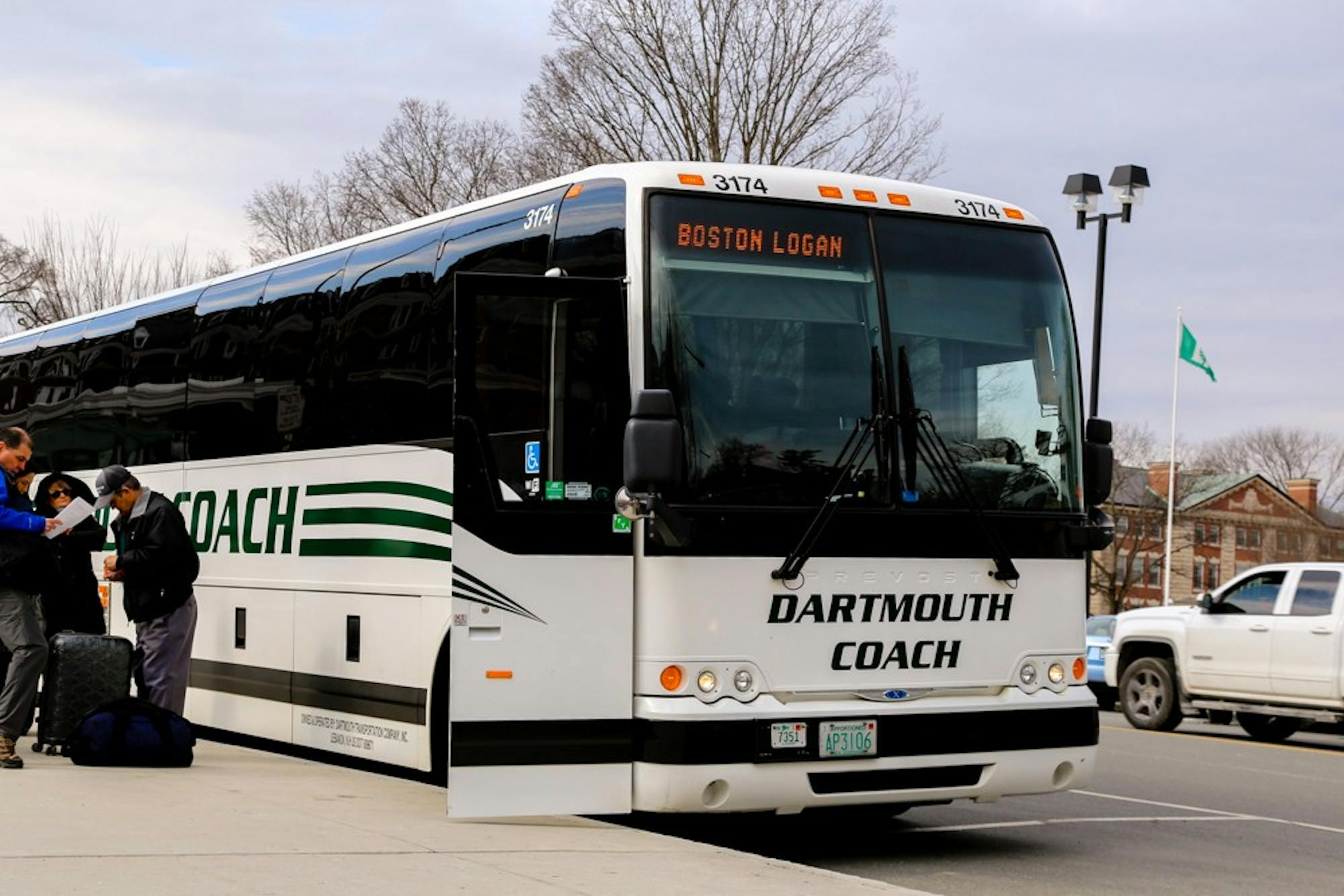Following the bus line Greyhound’s announcement that the company would no longer allow border enforcement agents to conduct immigration checks without warrants aboard its buses, Concord Coach Lines and Dartmouth Coach will similarly stop allowing immigration checks without warrants.
“Effective immediately, Concord Coach Lines [and Dartmouth Coach] will no longer consent to U.S. Customs and Border Protection’s warrantless entry of our buses for immigration checks,” vice president of Concord Coach Lines and Dartmouth Coach Benjamin Blunt wrote in a statement provided to The Dartmouth. “Our employees have been equipped with cards that will communicate this denial to Border Patrol Agents.”
Although drivers are told to deny consent, Dartmouth Coach employees are instructed “not to physically impede an agent from boarding a bus if they have other lawful grounds or otherwise insist on boarding,” Blunt wrote.
According to the Dartmouth Coach website, CBP agents may legally question individuals in public areas in Dartmouth Coach facilities without consent nor a warrant. The website then includes a list of rights passengers have if Border Patrol Agents board a bus or are questioned. These include the right to remain silent; refuse to answer questions about citizenship or immigration status or signing paperwork without a lawyer present; ask agents their reasoning for detainment; refuse a search of belongings; and record videos of immigration agents.
These policy changes follow an internal Custom and Border Protection memo obtained by the Associated Press which states that its agents cannot board private buses without the consent of the company.
Concord Coach and Dartmouth Coach did not immediately support Greyhound’s policy change. Last weekend, Blunt wrote in an email statement to The Dartmouth that the company would need more time to “investigate the implications of Greyhound’s decision and recent developments within DHS regarding its clarification on the rules of engagement, as well as consult with counsel and the national association.” However, this past Friday, Blunt said that the company felt confident that following industry standards was the right thing to do.
“Both Greyhound and the American Bus Association have recently revised their policies, and while we feel that the safety and security of all Concord Coach Lines [and Dartmouth Coach] passengers should be our primary focus, we also believe it is important to be consistent with our bus industry partners,” Blunt wrote.
Federal immigration officers periodically have enacted immigration checks within a “reasonable distance” from any U.S. or international border, which is defined by the federal government as within 100 air miles of an international border. Because Hanover and neighboring towns in the Upper Valley are within 100 miles of the Canadian border, an immigration checkpoint was operated on I-89 between exits 18 and 19 outside of Lebanon over the summer and near the beginning of fall term — leading to protest and outrage among members of the community.
Geography professor Richard Wright said that many federal ordinances have contributed to the racialization of immigration stops. For example, Wright cited the Trump administration’s expansion of Section 287(g) of the U.S. Immigration and Nationality Act as an example of a policy that allows the targeting people of color, especially Latinos. Section 287(g) allows local law enforcement agents to double as immigration officers –– police officers are legally allowed and encouraged to ask about immigration status during routine procedures.
Immigration checkpoints often create fear and limit the mobility of students who themselves are immigrants or come from a “mixed-status” family, according to CoFIRED student ambassador Cecelia King ’23. Some students fear traveling with their families, which can be disappointing as they may feel excluded from the Dartmouth community during events such as family weekends, King said.



